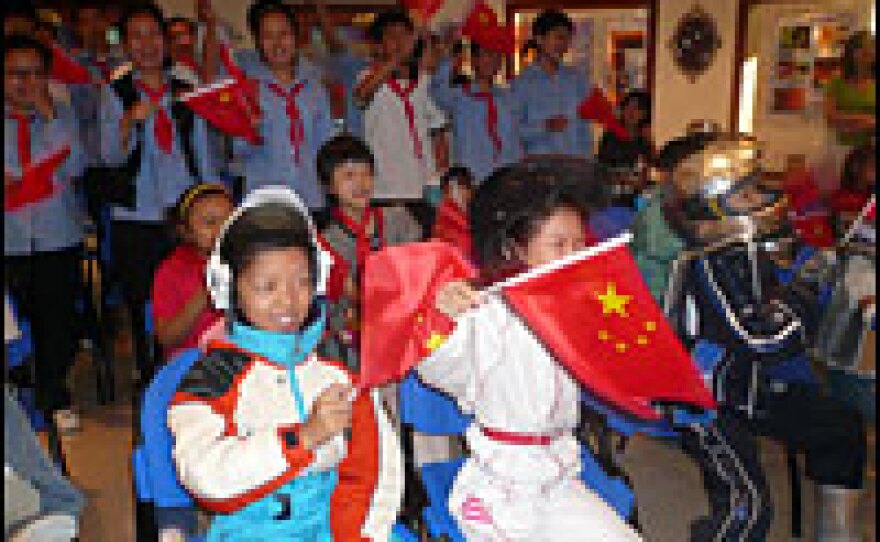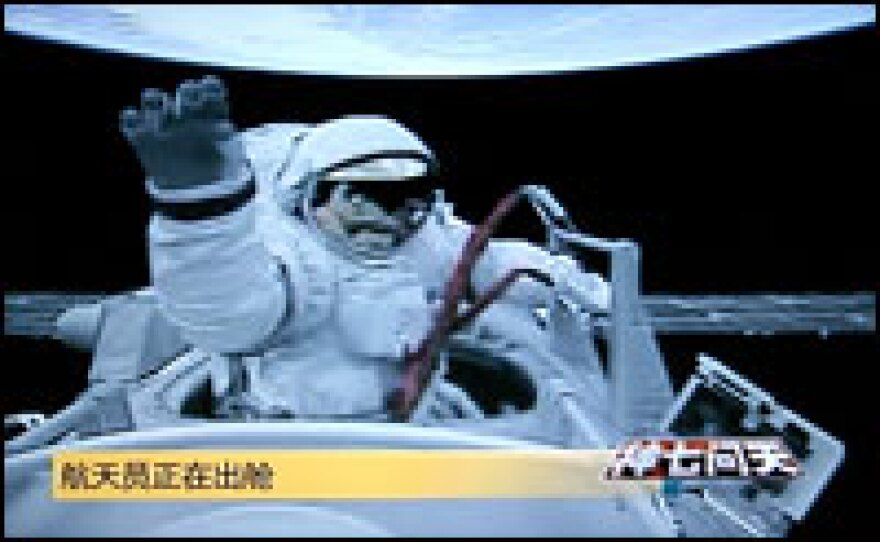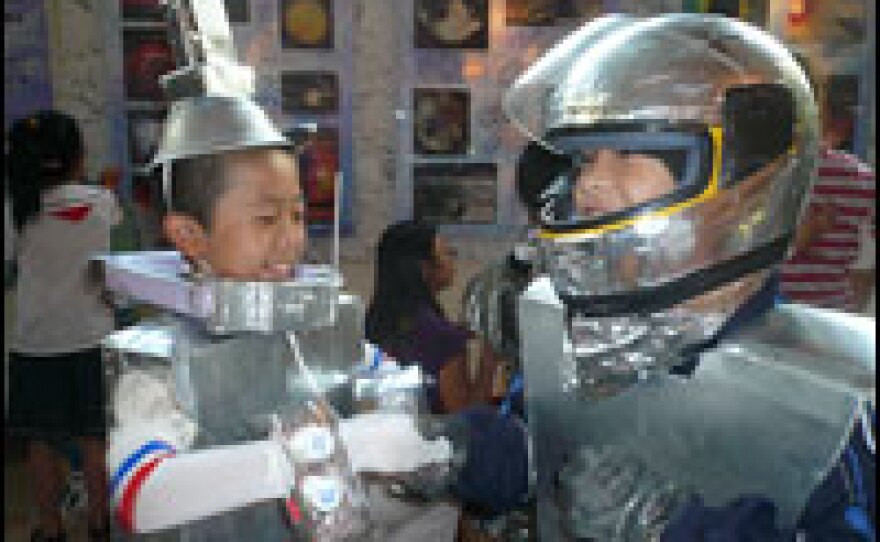

Primary and middle school students gathered Saturday to watch the live broadcast of China as it became the third nation — after Russia and the United States — to carry out a spacecraft. The milestone underscores China's technological achievements and is boosting national pride, especially among the nation's young.
The children are extremely excited — some of them even wear homemade astronauts' costumes; all of them clutch Chinese flags as they wait.
"Jiayou! Jiayou!" they shout, encouraging the astronaut who's opened the airlock and is about to venture outside.
To a huge cheer from the crowd, 42-year-old Zhai Zhigang emerges from the hatch. The students jump to their feet, waving their flags. His first movement: a wave to the cameras.
"I feel fine," he says in Chinese. "Greetings to the people of the motherland! Greetings to the people of the world!"
As he floats 212 miles above Earth, he's wearing a Chinese-made spacesuit, which cost $4.4 million. The spacesuit represents a big technological advance for China. It's a necessary step toward the Chinese goal of building its own space station. And it's also a matter of intense national pride, as shown by an exchange later between President Hu Jintao in the command center and astronaut Zhai in the spacecraft.
"Walking in space felt great," the astronaut says after Hu asks how he feels. "The spacesuit is very comfortable, and in the vastness of space, I felt even more proud of China."
For the students in this room, all space enthusiasts, this is a pivotal moment and a clear indicator of China's growing might.
"It's not the old China," says 15-year-old Wang Zhuoqun. "It's become stronger,"
"In a few years, we will overtake America," says 14-year-old Wen Zhiqi. "At this rate, we'll overtake everyone and be at the top of the world."
There's been wall-to-wall live coverage of the space mission itself, with much more information being relayed than in the past. Keen viewers have seen interviews with space experts, rocket designers and even the module's interior decorator. They've heard about the astronauts' meals (spicy chicken with peanuts) and even about the spacecraft's new collapsible toilet, which treats urine so it can be used as drinking water.
Gregory Kulacki from the Union of Concerned Scientists says the fact the coverage is live is telling.
"I think it shows the political authorities are more confident of the likely success of the mission," he says. "It makes for a pretty good viewing audience, whether there are commercial or political motives, it's certainly more dramatic."
This space launch was supposed to be the crowning glory to China's Olympic year. But the sense of euphoria has been dulled by the country's contaminated milk scandal, which has sickened 50,000 children. Some bolder Chinese are drawing comparisons. An outspoken commentary in a Shanghai newspaper was titled, "A country that can perform a spacewalk has no reason to produce bad milk." It's a juxtaposition few Chinese are yet making, but it's one that could prove uncomfortable for the Communist leaders.
Copyright 2022 NPR. To see more, visit https://www.npr.org. 9(MDAzMjM2NDYzMDEyMzc1Njk5NjAxNzY3OQ001))







